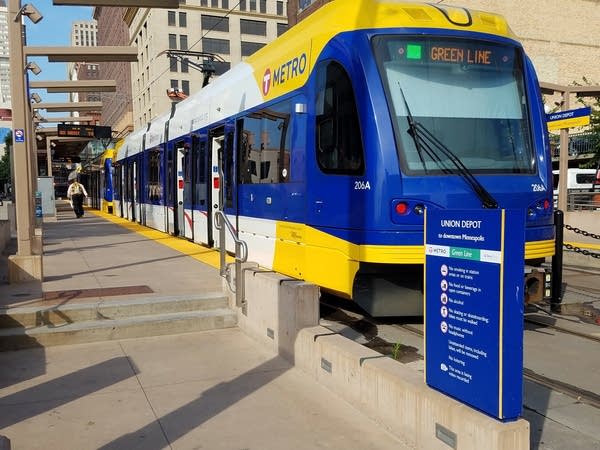5 takeaways from the week at the Minnesota Capitol

Go Deeper.
Create an account or log in to save stories.
Like this?
Thanks for liking this story! We have added it to a list of your favorite stories.
The transportation debate looks a lot like last year's
A transportation funding plan proposed by House Republicans this week would use $450 million from the state general fund for transportation projects. Supporters of the bill say that's the amount generated by sale taxes on auto parts, car repairs, car rentals and leases.
"We are in a surplus, so Republicans feel it's appropriate to use existing revenues to build our roads for the next 10 years," said Rep. Jon Koznick, R - Lakeville.
Turn Up Your Support
MPR News helps you turn down the noise and build shared understanding. Turn up your support for this public resource and keep trusted journalism accessible to all.
"We should use existing revenues rather than...tax increases, tab increases, sale tax increases and gas tax increases."
However, Rep. Frank Hornstein, DFL - Minneapolis, believes using general fund money instead of constitutionally dedicated funding is "short term, and risky."
Hornstein supports a 10 cent per gallon increase in the gas tax. He said it would add up to about $70 per driver each year, which he said is "far more stable over time."
"There could be a very uncertain, unstable economic future, and I guarantee you the first time we have a deficit in this state they're going to go after this money," said Hornstein about the general fund approach.
Are electric car owners paying enough for roads?
The Republican plan also includes a $75 annual fee for electric car owners.
"With electric vehicles, obviously, they're not using gas, so those drivers are benefiting from our roads without contributing to the gas tax," said Koznick.
He said there is no real opposition to that part of bill.
Hornstein doesn't see it that way. Because electric cars tend to be more pricey than standard vehicles, he said those drivers are paying more at the outset in motor vehicle sales taxes.
"They are paying their fair share and more," said Hornstein of electric car owners.
Republicans like buses, not trains
The House bill eliminate state subsidies for operations and maintenance on existing light rail lines and clamps down on the planning and construction of future lines.
Koznick said that light rail projects are too expensive to build and operate.
"We would prefer that the Met Council spends their money more wisely in more efficient bus routes and systems," said Koznick.
Hornstein noted the bill cuts base funding for the Metropolitan Council, so even bus transit would have to be cut back if the bill becomes law.
Security money for community centers seems sure to pass
Threats directed at Jewish Community Centers across the country have put nerves on edge.
Rep. Drew Christensen, R-Savage, is the author of a designed to help increase security at nonprofits deemed by the federal Homeland Security Department to be at risk of a terrorist attack.
"The bill ensures Minnesotans can live safe from fear," said Christensen.
The bill will allow nonprofits to apply for grants up to $75,000 to improve security.
Budget battle shapes up
Majority legislative Republicans laid out the broad outlines of their budget plans this week. Republicans want to cut taxes more than Gov. Mark Dayton does, and Dayton's plan spends more on human services, education and state agencies than Republicans want to.
"As we learn more about these individual bills, we're finding more problems that could be sticking points later on," said MPR News reporter Tim Pugmire.
The House education bill spends much less on Dayton's priority—pre-kindergarten programs—than Dayton has recommended.
Reporter Brian Bakst said cutting funding to pre-kindergarten education could be a strategic move. Republicans might want to use that as a bargaining chip.
"People shouldn't be worried that these proposals will be the budget," said Bakst.
It's likely negotiations on the budget will go on until the session ends in May. If there's no resolution by then, a special session and possible government shutdown loom.
To hear the full segment use the audio player above.



